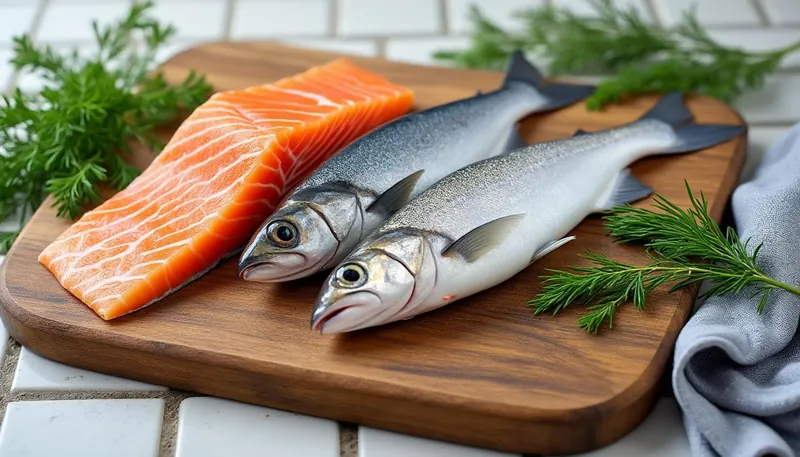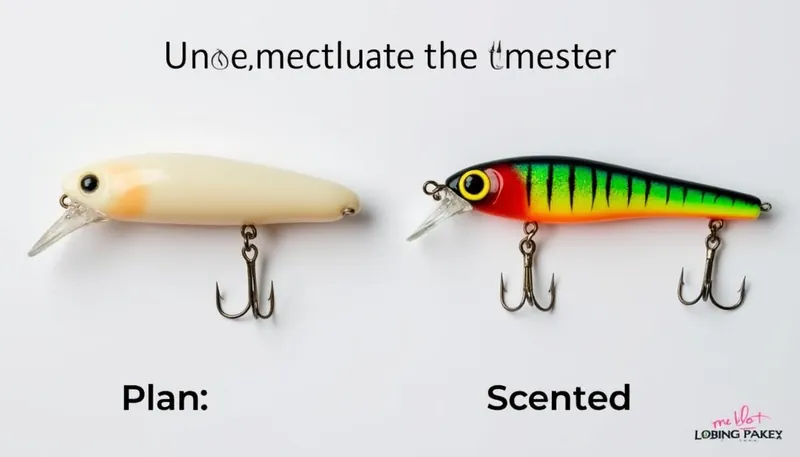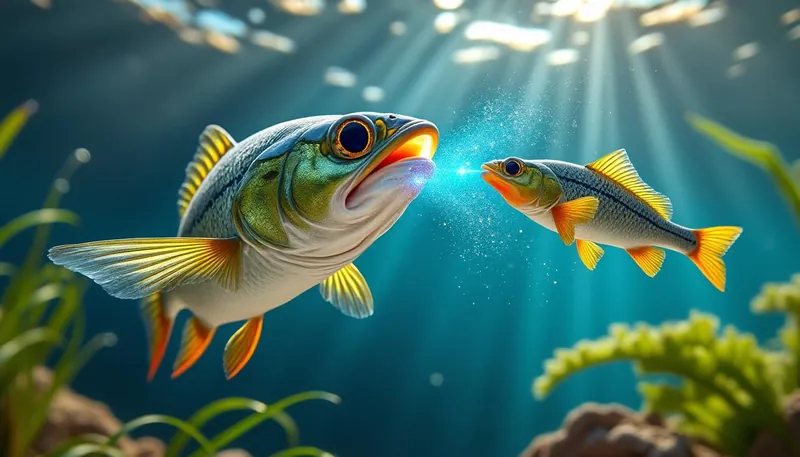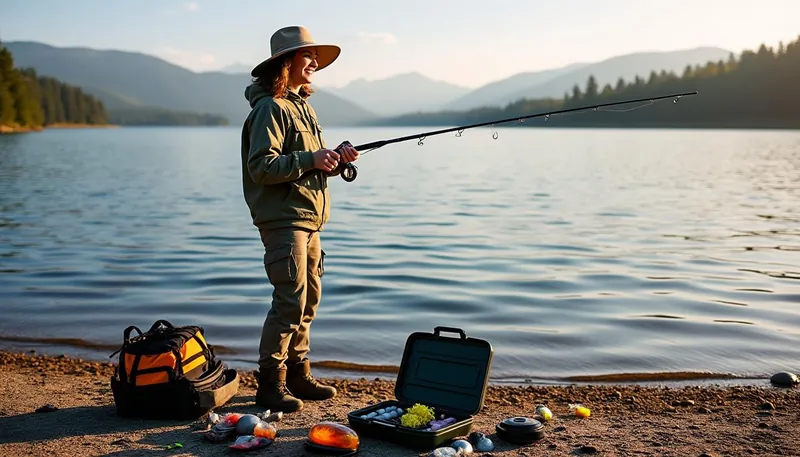Fishing is more than just a hobby; for many, it’s a way of life. Whether you’re casting from the shore or trolling from a boat, understanding what will attract fish can significantly enhance your success on the water. As the fishing lure industry continues to flourish, with sales reaching $1.3 billion in 2019 and growing at around 4.1% annually, anglers are constantly looking for that edge that will help them land more catches. Among the various tools at an angler’s disposal, bait and lures stand out as essential for pulling fish to the hook. A common debate that frequently arises in fishing circles is whether fish truly prefer scented or unscented lures. This question ties deeply into the biology of fish and the science of attractants. So, do fish rely more on scent or sight when deciding whether to strike? Let’s dive into the details.
Brief
- 🚀 Fishing lure industry worth $1.3 billion in 2019 and growing.
- 🎣 Scent appears to affect fish behavior, particularly in low-visibility conditions.
- 🔬 Fish have strong olfactory senses that outperform human abilities.
- 🐟 Different species respond to different scents—knowledge is key!
- ⚗️ Quality matters: water-soluble scents are far more effective than oil-based ones.
Why Scent Matters in Fishing
Scent plays a crucial role in fishing as it can significantly affect a fish’s decision-making process. Fish possess highly sophisticated olfactory systems developed over millions of years, enabling them to detect chemical signals in the water. A well-known fact in the angling community is that fish will often rely on their sense of smell to locate prey, especially in conditions where visibility is poor, like murky waters or during low-light hours.
The anatomy of a fish’s olfactory system is fascinating. Fish have nares, or nostrils, that are specifically designed to pick up scent particles. These particles dissolve in water, and once detected, they are processed through the fish’s brain for analysis. Some fish can detect scents in the water at extraordinarily low concentrations—sometimes as diluted as one part per billion! This acute sense of smell makes scents an important tool when fishing.
The Importance of Different Scents
Not all fish species are created equal when it comes to their interaction with scents. For example, catfish are often referred to as « swimming tongues » due to their high concentration of taste buds all over their bodies. This allows them to detect chemical signals in their environment exceedingly well. On the other hand, species like bass primarily rely on visual cues, but they, too, possess a sense of smell that can be advantageous under specific conditions.
Here is a quick rundown of how some popular fish species respond to different scents:
| Fish Type | Scent Preference | Typical Uses |
|---|---|---|
| Catfish | Strong, meaty aromas (e.g. blood, cheese) | Effective when fishing in murky waters |
| Bass | Garlic, shad, crawfish | Best during feeding times in clearer waters |
| Trout | Subtle scents (e.g. anise, garlic) | Useful for enhanced bites |
This knowledge can vastly improve your fishing success, so it’s essential to target your bait and lures based on the fish species you’re after.

The Science of Fish Attractants
Fish attractants and scents are typically made from various substances, including amino acids, enzymes, oils, and sometimes real fish extracts. Companies like Berkley, Yum, and PowerBait have invested heavily in research and development to create effective attractants. Their products aim to replicate the natural odors emitted by prey species, triggering fish’s natural instincts.
Here’s how attractants made by leading brands stack up against each other:
- Berkley: Known for their extensive research and successful lines of products like PowerBait, incorporating water-soluble scents that can attract fish even in murky water.
- Yum: Offers infused soft plastics that carry strong scents like crawfish and garlic, geared toward various fish species.
- Gulp!: Provides natural bait substitutes that release scent effectively in the water.
With the advancements in scent technology, testing its effectiveness has become easier. For instance, side-by-side comparisons of scented and unscented lures often yield interesting results. While some anglers swear by scented lures, others contend that they catch just as many fish using unscented ones, citing skill and presentation over aroma.
Something crucial to note is that oil-based scents do not work well. Research suggests that fish can only smell water-soluble compounds. This fundamental truth highlights why companies must invest in developing water-compatible scents instead of relying on traditional oil-based attractants.
Do Scented Lures Actually Work?
The effectiveness of scented lures is frequently questioned within the fishing community. Some studies indicate that they can improve catch rates, particularly in situations where fish are not actively feeding. But how much of a difference does scent really make? To address this, let’s look at the science behind how scents impact fish behavior.
As previously mentioned, fish have a strong sense of smell, and they use it to locate food. However, when clarity is present in the water, their reliance on sight can overshadow their sense of smell. Nevertheless, when fish are hesitant or inactive, scent can prove effective.
Specific Scenarios Where Scent Works
- 🌊 Murky Waters: When visibility is low, fish might be more inclined to rely on scent.
- 🌅 Low-light Conditions: Early morning or late evening fishing, when sight is limited.
- 🔄 High-pressure Situations: When fish are pressured due to fishing pressure or environmental changes.
In many experiments and anecdotal reports from fishermen, it appears that while scented lures may not guarantee increased numbers, they do enhance the chance of triggering an attack. The moment a fish bites, the additional time gained from the scent can be a game changer.

Best Practices for Using Fish Attractants
Also, consider using pre-scented baits for convenience, particularly for quick trips or if you’re just beginning. Although the application of attractants can add to the preparation, it can vastly improve your fishing results when done correctly. In conclusion, while scented lures may not be an absolute must-have, the science and practical experiences suggest that they can indeed pack an extra punch. Fishing is about making informed decisions, and scents can be valuable tools in the angler’s arsenal, especially in challenging fishing conditions.

